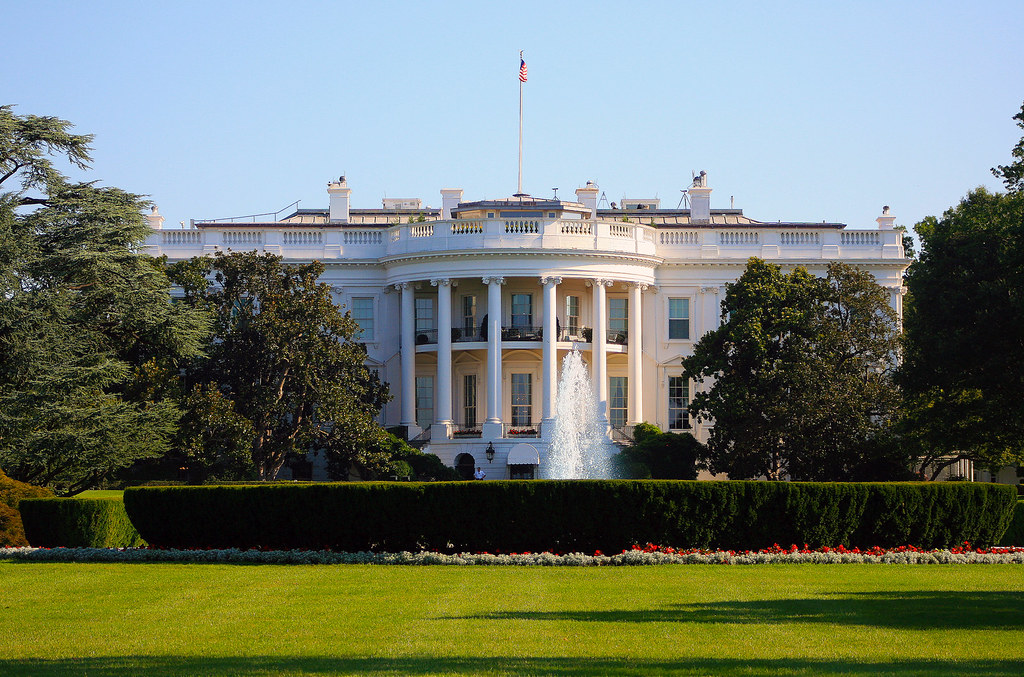Open letter on the White House public access directive
peter.suber's bookmarks 2013-02-28
 …White House… “White House” image by flickr user Trevor McGoldrick.
…White House… “White House” image by flickr user Trevor McGoldrick.As has been widely reported, this past Friday the White House directed essentially all federal funding agencies to develop open access policies over the next few months. I wrote the letter below to be forwarded to faculty at the Harvard schools with open-access policies, to inform them of this important new directive and its relation to the existing Harvard policies.
To: Harvard faculty at schools with open-access policies[1] From: Stuart Shieber, faculty director, Harvard Office for Scholarly Communication
I write to you with three pieces of good news.
First, the White House on Friday released a new policy memorandum expanding public access to the results of federally funded research. This new policy follows on from two broad-based national policy forums in 2010 and 2012 organized by the White House Office for Science and Technology Policy. It also serves as the response to over 65,000 petitioners to the White House “We the People” site supporting open access. The policy directs essentially all federal funding agencies to develop policies along the lines of the successful public access policy already in place at the National Institutes of Health, guaranteeing that articles based on federally funded research are made freely available to the public within one year of publication. The first piece of good news is that research results will now be much more broadly available and have greater impact.
Public access policies like the NIH’s, which will soon be in place in all major federal funding agencies, come with a responsibility: Researchers must retain sufficient rights to comply with the public access requirement. The second piece of good news is that because your school has an open-access policy voted by the faculty, you already are automatically retaining sufficient rights to comply with the government’s public access requirements. Unless you opt out of rights retention by expressly directing that a waiver of the open-access policy license be granted, the school’s open-access policy has the effect that you retain broad rights in your articles, sufficient to distribute them in compliance with the NIH policy, as well as any new policies that arise from the White House directive or from the bipartisan Fair Access to Science and Technology Research (FASTR) Act that was just introduced in both houses of Congress. Faculty at most Harvard schools are thus exceptionally well placed to take the broadest advantage of the new White House and Congressional initiatives in making our scholarship openly accessible.
The third piece of good news is that there is no need to wait for the White House policy to effect change in funding agency policies. By virtue of Harvard’s open-access policies, you can already provide for open distribution of your articles. Indeed, part of your school’s open access policy is a commitment by all faculty to do just that: provide copies of your final manuscripts to be placed into the DASH repository. The Office for Scholarly Communication stands ready to help with the process. All you need to do is forward us your articles through our “quick submit” form. Your articles can then join the over 9,000 other articles in the repository that have been distributed well over a million times to grateful readers from every continent on earth.
Please do not hesitate to contact us if we can help in any way in broadening access to your scholarship.
- The eight Harvard schools with open-access policies (with the date of policy enactment) are: ↩
- Harvard Faculty of Arts and Sciences (2/12/2008)
- Harvard Law School (5/1/2008)
- Harvard Kennedy School of Government (3/10/2009)
- Harvard Graduate School of Education (6/1/2009)
- Harvard Business School (2/12/2010)
- Harvard Divinity School (11/15/2010)
- Harvard Graduate School of Design (3/30/2011)
- Harvard School of Public Health (11/26/2012)